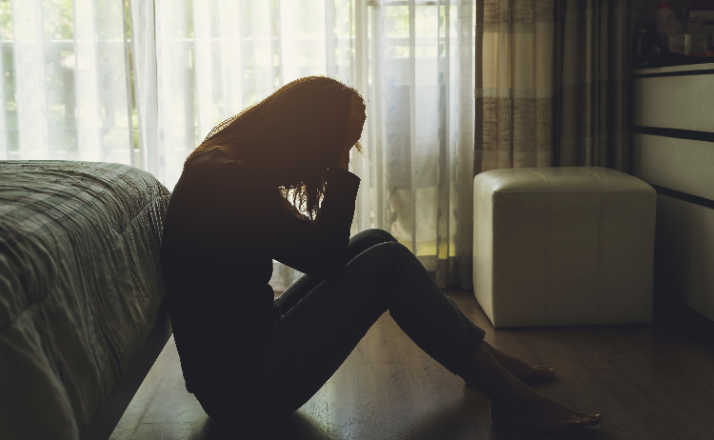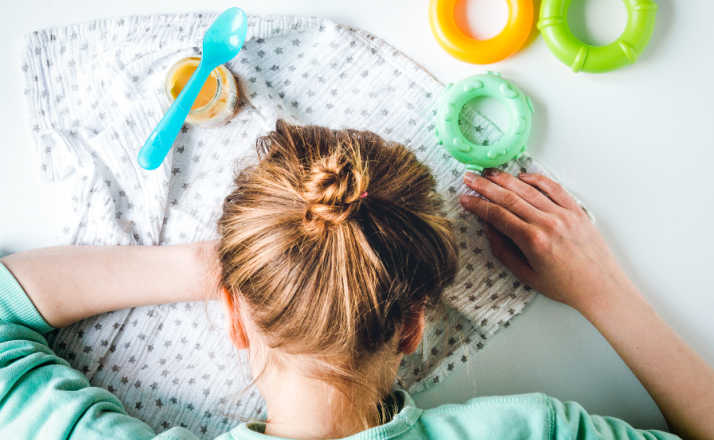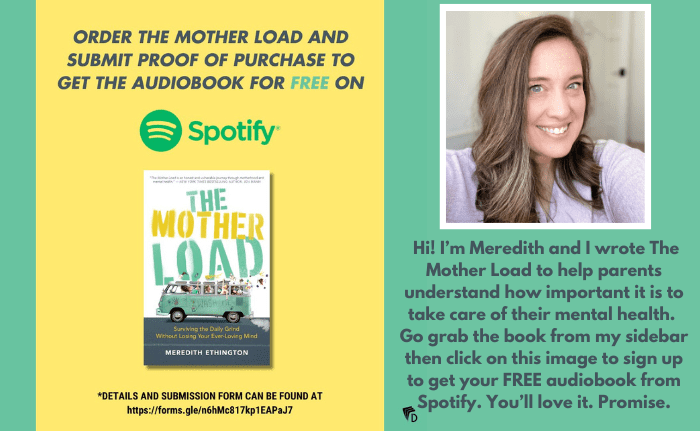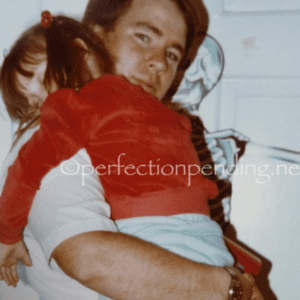If you’re a mom and you’re depressed, I wish I could give you a hug. But, I have some good news. It’s totally possible to know how to be a good mom when depressed.
It’s not easy to talk about depression, especially when you’re a mother.
Since this article discusses mental health, depression and suicide, please use caution before reading. Also keep in mind that SAMHSA’s National Helpline is a free, confidential, 24/7, 365-day-a-year treatment referral and information service (in English and Spanish) for individuals and families facing mental and/or substance use disorders. You can Also visit the online treatment locator.
SAMHSA.gov
I’m a mom that has struggled for years with anxiety and depression and OCD, and I’m also a mom that continues to fight that battle every single day. You’re not alone. And yes, you’re a good mom even if you’re depressed.
First, let’s cover the basics, what are the symptoms of depression?
Depression is nothing to be ashamed of. It’s a real illness, although it’s an invisible one, it’s important to understand that being depressed is not your fault. It is an illness, and one that should be taken seriously.
Depression has physical symptoms too.
According to the National Institute of Mental Health, there are physical and psychological symptoms that are indicators of depression. Below I’m including a list directly from NIMH for you to check and see if you, or a family member may have depressive symptoms.
According to NIMH, symptoms of depression include:
- Persistent sad, anxious, or “empty” mood
- Feelings of hopelessness or pessimism
- Irritability
- Feelings of guilt, worthlessness, or helplessness
- Decreased energy or fatigue
- Difficulty sleeping, early morning awakening, or oversleeping
- Loss of interest or pleasure in hobbies and activities
- Moving or talking more slowly
- Feeling restless or having trouble sitting still
- Difficulty concentrating, remembering, or making decisions
- Changes in appetite or weight
- Thoughts of death or suicide, or suicide attempts
- Aches or pains, headaches, cramps, or digestive problems without a clear physical cause that do not ease even with treatment
If you’re having suicidal thoughts, or suicidal ideation, this is part of your depression. You matter. You aren’t alone. And you need to seek help immediately.
But, even if you are not feeling suicidal ideation, your depression can still be serious, and it’s important to get it in check. Taking care of your mental health is important for you AND for your kids.

Depression affects everyone differently.
So, when trying to figure out if you’re depressed, make sure to always consult a professional. If you have a feeling that you are depressed, it’s vital that you talk to someone. Depression will persist if you don’t take time to seek help and treatment.
Just like any other illness, you need professional care when you’re depressed.
So, what if you are a depressed mom?
That’s OK! So often, when you’re a depressed mom, it can feel even more overwhelming. Why? Because you have little ones (or big ones) to take care of, and often moms are notorious for putting themselves dead last.
All people that struggle with mental illness have a hard time, but moms especially tend to put off taking care of their own emotional well-being, and even their basic human needs.
But if you feel like you are a depressed mom based on the symptoms listed above, it’s time to evaluate the reasons for your depression and figure out how to get help and how to function as a mom – and be a good one! – when you’re depressed.
Family members are your best resource when you’re a mom with depression.
I promise you, your family members are concerned for you. Your kids are probably worried about you too and possibly even wondering what they can do to help you.
So, how can you be a good mom while depressed? Start by telling someone you think you’re depressed.
Your inner circle needs to know that you are struggling with depression.
This can be a spouse, or a parent, or a close friend or neighbor that you confide in. Chances are, you need a break, and those are the people that can help you get it.
There are certain types of mental illness unique to women.
Women are more prone to mental illness because of our hormonal shifts. We can struggle with certain types of mental illnesses that the opposite sex does not struggle with.
Postpartum depression is a common type of depression many moms face after having a baby.
I struggled with PPD after all three pregnancies, but being able to know that it was happening helped me tremendously to identify it and get help.
But, perinatal depression can be a thing too! Many women start feeling depressive symptoms during pregnancy. It’s so important to take care of your growing baby, but also take care of yourself too, and mention during your prenatal visits that you think you may be depressed.
Women can also experience PMDD or premenstrual dysmorphic disorder.
In simple terms, PMDD is an extreme version of PMS. Your cycle may be dictating how you’re feeling. If you’re feeling more depressed during certain parts of your cycle, it’s important to mention that to your doctor as well. There are treatments for both postpartum depression and PMDD.

Stay-at-home-moms are uniquely prone to depression, although all moms can experience it.
Stay-at-home-moms (SAHMs) often experience depression. I wrote a facebook post years ago about why I believe it’s easy to get depressed when you’re a SAHM. I got a lot of heat for it, because many working moms chimed in that it wasn’t just stay-at-home-moms that get depressed.
While I agree 1000% that all moms today, and specifically American moms, can get depressed, I think there are some reasons stay-at-home-moms are more prone to depression.
Being a stay-at-home-mom is more isolating.
I know when I was a new mom, I spent a lot of time with just me and the baby and often felt very alone. This was before social media even existed! So, it was hard for me to find a community. I spent many hours in our little apartment alone with my own thoughts.
I definitely struggled with feeling depressed because I was lonely. So, if this sounds like you – there are tons of ways to make friends that I outline here. Get out and make as many friends as you can so that you don’t feel so isolated.
The job of stay-at-home-mom doesn’t always feel rewarding.
Motherhood is the most under-appreciated job in the world, no matter if you work or stay home. But, at least when you have a job outside the home, you are often receiving validation for your hard work from external sources.
SAHM work is often invisible, and not appreciated by society. And when your kids are little it’s certainly not appreciated by your kids! Hopefully you have a partner that supports you, but if not this can also lead to feelings of depression.
Stay-at-home-moms often don’t even value their own worth.
It’s easy when you’re feeling un-appreciated to slip into feelings of worthlessness. I know I struggled with this as a new mom. When I first had kids, I wanted so bad to do everything just perfectly, and motherhood was not something that came easily to me.
We often don’t realize how important the work we do is. Sometimes I still struggle with that to be honest.
While stay-at-home-moms are not the only ones that can get depressed (we see you working moms!) it’s important to look at whether or not being a SAHM might be contributing to your depression.
All moms can get depressed at some point in their life.
It could just be that your depression is not based on your lifestyle or circumstances at all. It’s highly possible that you are a mom with depression simply because of your genetics.
For me, depression runs in my family. I come by it honestly, and it’s nothing to be ashamed of. Maybe your family has high cholesterol, and mine has depression. Both are illnesses equally valid and worthy of help and treatment.
Mental illness doesn’t have to have a situational cause. It can just be how your brain is. I know that’s the case for me, and for millions of moms out there. So, that doesn’t mean we can’t be good moms and depressed!
So, how can you be a good mom when you’re depressed?
No matter if you work, work from home, or are a stay at home mom, you can get depressed. And there is nothing more overwhelming than having all the responsibilities that moms have on them today, and none of the motivation to do them.
Start by seeking help from a professional.
This is absolutely the most important step. I cannot say enough good things about both taking medication for depression and receiving counseling from a professional. I’ve done both, and continue to do both.
You don’t have to go to a psychiatrist. The first time I ever sought help from a professional was just with my primary care physician. They can start you on medication and help refer you to a professional counselor.
You don’t have to feel overwhelmed by rushing off to a psychiatrist. Your primary care doctor can guide you and help you figure out if you need additional help that they cannot offer.
Depressed parents should lower their expectations.
We often put so much pressure on ourselves to do all the things, and to do it perfectly. So you’re depressed and can’t clean the house one day – that’s OK! Play games with your toddler while you’re lying on the couch. Or make cleaning a game for your kids if that’s what is stressing you out. Be OK with more screen time.
Whatever the expectation you have that might be unrealistic when you’re depressed, see if you can take it off your plate. If you can’t, ask for help from those around you.
Support groups are a great idea when you’re struggling with your mental health.
You don’t necessarily have to find a support group specific for depressed moms. Just get a support group for social activity, online advice, or a group of people that are in the same life stage as you. If you can open up and be vulnerable with other parents, you will find your people.
Social interactions for both you, and your kiddos will help boost everyone’s morale.
Getting a supportive group of friends around you is a great way to take care of yourself, and in turn, be a good mom to your kids while depressed.
There may be days that you can’t wash your hair, but if you can get out of the house with your kids (even if it’s to the park) there’s a strong chance that you’ll feel like you’ve accomplished something good for your kids that day.
You can do something simple like go to a park, or a library story time, so that both you and your kids are getting the social interactions you both need.
Remember that what kids want most is YOU.
I can’t stress enough that the way to a kids’ heart is to just spend time with them. My happiest memories from childhood aren’t some big, grand adventure. They are the simple moments at home with my parents.
We did a lot of eating meals as a family, and playing board games together. Those simple memories are the happy ones.
Since I’ve become a mom, I’ve realized that my kids don’t need a lot to be happy.
Talk to your kids about your depression.
Your kids love you depression or not. You don’t have to have it all together all the time. If they’re old enough, talk to your kids about your depression. I’ve been able to have conversations with my kids as they’ve grown and explained to them when I’m having a hard day.
Even the youngest toddler can understand that “mommy is sad today.” You can create a home environment with even the youngest kids so that they understand and respect feelings and emotions.
You will probably be surprised at how compassionate kids can be about mental illness.
Creating an environment that normalizes talking about mental health is a great way to be a good mom while depressed.
If your kids feel safe to talk to you about feelings and emotions, the greater chance that they will be able to open up to you one day when they are also feeling depressed or anxious.
While we don’t want to dump on our kids, or make them feel responsible for our emotions, we can reiterate that our depression has nothing to do with them, and help them realize it’s NORMAL to sometimes feel sad, anxious, and depressed.

So what’s the secret to how to be a good mom when depressed?
The secret is simple – you’re already a good mom. Yes, even if you’re depressed.
Many times we like to define what makes a good mom based on society’s standards or our own personal biases. Before I had kids, I would have had a totally different definition with what makes a good mom and what doesn’t.
I certainly wasn’t factoring in my own mental health on that list either.
A bad mom isn’t out there googling how to be a good mom.
So if you’re worried that you aren’t a good mom, then chances are – you’re already a good mom.
If you’re looking to feel like a good mom, here are some ideas for getting out of your own head, and recognizing what your kids really need.
Don’t compare yourself to others.
You are doing what you can with what you have. Comparing yourself to what other parents are doing is not only harmful to you, but it isn’t realistic anyway.
Love your kids. That’s it. That’s really all they need to be happy. They want your love and your attention. Those are two things you can give even from your couch.
Take it one day at a time.
When you’re a mom that’s depressed, you’re going to have good days and bad. Recognize on the bad days that you’re doing the best you can. When you’re having a good day, take advantage of it.
Being a good mom when depressed is all about accepting your own limitations, and adjusting your kids’ expectations as well.
Good moms have anxiety, depression, cancer, and all kinds of other illnesses! Just because mental illness is invisible, it doesn’t make it any less valid.
In other words, don’t worry – you’re depressed, but you’re still a good mom.
And if you’re wondering if you can be anxious and be a good mom? Go here.





Leave a Reply